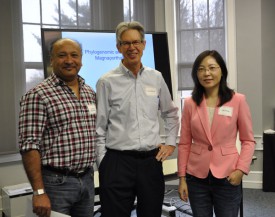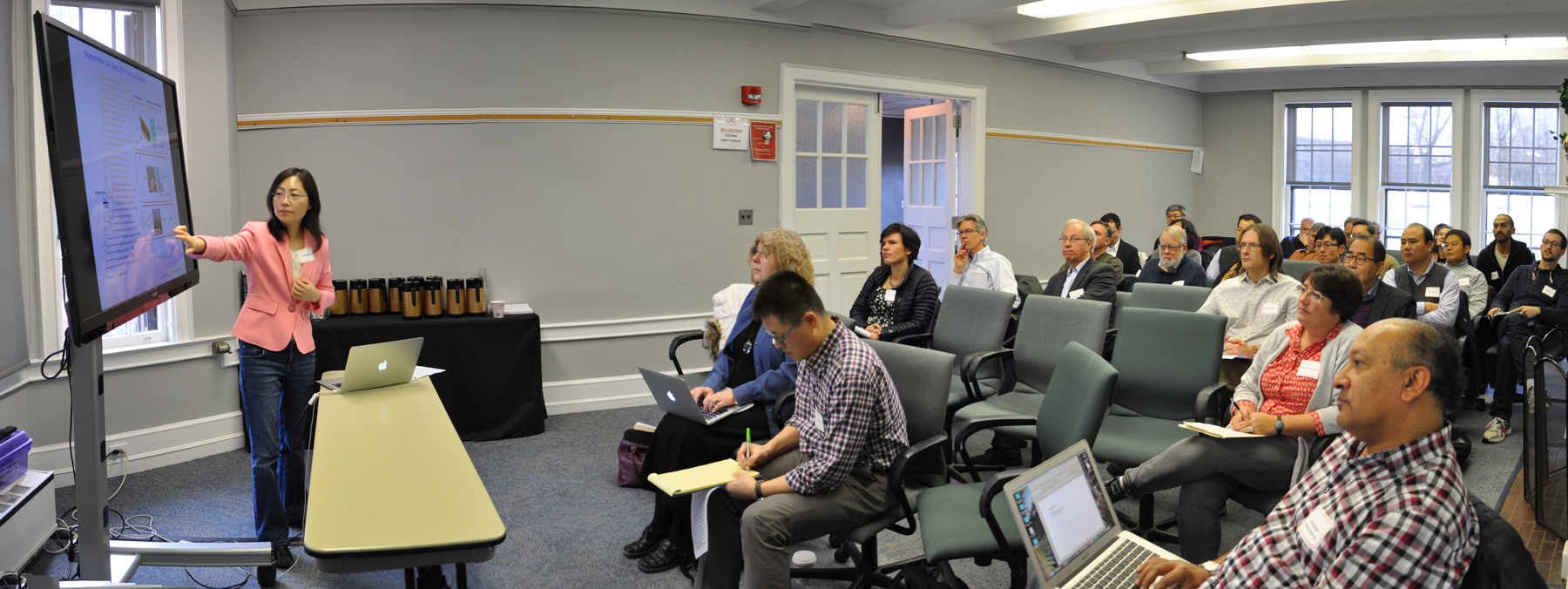Associate professor Ning Zhang, Department of Plant Biology and Pathology, and Associate Professor Siobain Duffy, Department of Ecology, Evolution and Natural Resources, received prestigious Faculty Early Career Development Program (CAREER) awards from the NSF. The CAREER award is NSF’s “most prestigious awards in support of junior faculty who exemplify the role of teacher-scholars through outstanding research, excellent education and the integration of education and research within the context of the mission of their organizations.”

Siobain Duffy
Duffy’s CAREER project, “Can a virus get there from here? Mapping the pathways of RNA virus emergence,” is supported by $675,000 over five years. RNA viruses are known to frequently host-shift to infect new hosts, but improving infectivity on any single host species tends to hurt the virus when it tries to infect a different host. With a benign RNA virus that only infects bacteria, Duffy’s lab is determining how much adaptation to one host restricts the virus’ ability to emerge on new host species. Using experimental evolution, she will determine how often an RNA virus’ host specialization bends its evolutionary trajectory of emerging on novel hosts and how often it leads to dead ends that cause the virus to back track (revert mutations) before successfully adapting to new hosts.
In addition, Duffy’s NSF-supported project will provide research opportunities for two postdoctoral fellows and prepare them for academic teaching careers. The post-docs will assist in teaching evolution to New Brunswick middle school students and will teach a new summer lab course that will allow Rutgers undergraduates to conduct some of this experimental evolution research themselves. This project will advance our understanding of adaptive landscapes, help develop more accurate models of emerging viruses for assuring public health and improve public understanding of the microbial evolution that is occurring around us every day.

L-R: Rutgers faculty colleagues Debashish Bhattacharya, Brad Hillman and Ning Zhang.
Zhang’s award, worth $592,980 over five years, will be used to conduct research on the rice blast fungus, the most destructive pathogen of rice, a staple food source for about half of the world’s human population. She will study the systematics, evolution and genomics of the rice blast fungus and allied species, and build a comprehensive monograph on these Magnaporthales fungi, which will available online to researchers and the broader user communities worldwide at no cost.
The global monograph of Magnaporthales will include traditional morphological descriptions, diagnostic illustrations, distribution maps, host-range information, interactive identification keys to genera and species, as well as DNA barcodes. Genomic sequences for the representative taxa also will be linked to the cyber-enabled monograph. This research will have important impact on the study of fungal systematics, genetics, biodiversity, and plant protection and quarantine feasibility.

Ning Zhang presents at the symposium, “Comparative genomic approaches to understanding the evolution of Magnaporthales,” which she and faculty colleague Debashish Bhattacharya, evolutionary biologist, organized in January 2016.

